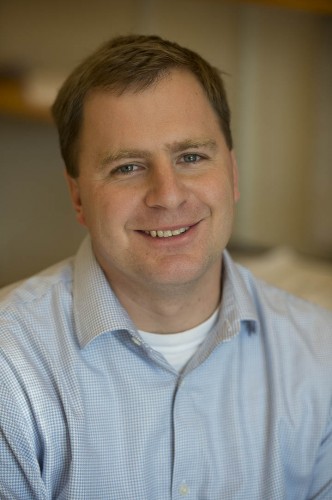Paul Shea, assistant professor of economics
If you expect to get a raise next month, that expectation might affect your economic behavior — encouraging you to spend more money now, or perhaps increase your retirement savings.
So expectations are important to the economy, which makes the accurate prediction of expectations important to economists. That’s an aspect of the field that interests Assistant Professor of Economics Paul Shea, a macroeconomist and econometrician who develops mathematical models for such predictions.
“Economists really don’t agree on how people form expectations,” says Shea, who began teaching at Bates this fall. If the models assume that people’s expectations are more wrong than right, then economic predictions will be off, too, as happened during the 1970s. And assuming that people are smart predictors, as the models did during the 1990s, creates its own set of problems.
So Shea, working with algorithms that simulate various factors affecting economic behavior, seeks to model expectations so the agents — the theoretical people in his models — “are just about as smart as the people who are actually making decisions in the economy.”
For example, how do people form future expectations of stock prices? Shea might give his agents an algorithm that simulates predictions based on past performance of stocks. “They’ll use that backward-looking algorithm to form expectations going forward,” he explains.
“The models can make predictions about any number of things, and these predictions can be tested against what we observe in data” from the real-world economy, he says. “If the theory models yield predicted behavior that looks like actual behavior, we think they’re pretty good.”
Shea earned a bachelor’s degree in economics at Cornell, and a doctorate at the University of Oregon, where he also worked as an instructor and teaching assistant from 2002 to 2007. From 2007 until he came to Bates, he was a member of the economics faculty at the University of Kentucky.
